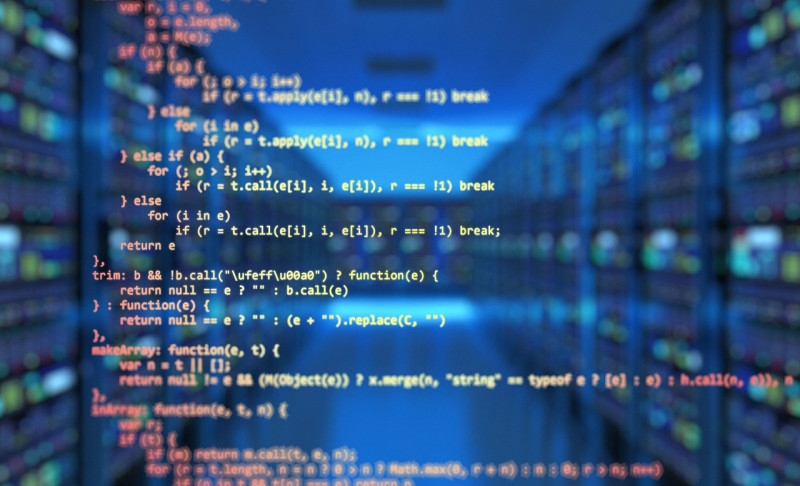Description
Which treatment offers the best recovery chances at the lowest cost? Which pricing strategy keeps a business profitable without losing customers? Are some patients over- or under-insured given their health risks? How quickly is a new infectious disease likely to spread? What puts former criminals back on the right track? Can social media anticipate election outcomes? How many social classes does 21st-century society really have?
Questions like these can be tackled with statistical and machine learning approaches. They are the art and science of tackling questions like these by analyzing data. Just as cartographers create maps to reveal the shape of a landscape, data analysts use visualizations to uncover patterns and hidden structures within complex datasets. And just as doctors diagnose illnesses and guide patients toward better health, data analysts anticipate the consequences of actions and events so that informed decisions can be made. Methods from statistics, data mining and machine learning form the foundation of this process, enabling us to extract meaningful insights from data in a rigorous and systematic way.
In this course, you learn how to analyze data, make informative visualizations, handle missing data appropriately, uncover hidden structure, and predict the consequences of actions and events. We use methods from statistics, data mining and machine learning, but the emphasis is on intuition and sound principles rather than mathematical derivations. The course has a strong practical character: you will work with real datasets and learn how to choose appropriate methods, implement them, and interpret and critically evaluate the results in real life.
Prerequisites
- Participants are kindly requested to bring their own laptop and ensure that the latest versions of R and RStudio are installed prior to the lab meetings.
- Basic knowledge of statistics and the statistical software R is required (approximately at the level of the Summer School course Data Science: Statistical Programming with R or the online e-book R for Data Science by Hadley Wickham)
Data Science specialisation
This course can be taken separately, but is also part of a series of seven courses in the Summer School Data Science specialisation taught by UU’s department of Methodology & Statistics:
- Data Science: Programming with Python (Course code S17, 06-10 July 2026)
- Data Science: Statistical Programming with R (Course code S24, 06-10 July 2026)
- Data Science: Network Science (Course code S37, 13-17 July 2026)
- Data Science: Applied Text Mining and Natural Language Processing (Course code S42, 13-17 July 2026)
- Data Science: Introduction to Machine Learning and Data Analysis in R (This course, 20 – 24 July 2026)
- Data Science: Solving Missing Data Problems in R (Course code S28, 20 – 23 July 2026 27)
- Data Science: Machine Learning with Python (Course code S70, 2027)
Upon completing, within five years, three out of seven courses in the Summer School Data Science specialisation), participants can obtain a certificate. Please click here for more information about
the full specialization.
Target audience
Applied researchers and master students from applied fields such as sociology, psychology, education, political science, public policy, quantitative criminology, human development, marketing, management, biology, medicine, computational linguistics, communication sciences. A maximum of 30 participants will be allowed in this course. Please note that the selection for this course will be done on a first-come-first-served basis.
For an overview of all our summer school courses offered by the Department of Methodology and Statistics please click here.
We also offer tailor-made M&S courses and in-house M&S training. If you want to look at the possibilities, please contact Dr. Laurence Frank at pe.dsai@uu.nl.
Aim of the course
This course aims to provide you with hands-on experience applying classical as well as modern statistical and machine learning techniques using R for analysing data. More broadly, the course introduces participants to the core ideas, methods and workflows of statistical and machine learning, enabling them to confidently analyse real-world data, build and evaluate predictive models, discover meaningful structure in complex datasets and communicate their findings through clear visualisations.
Learning goals
After completing this course, participants will be able to:
- Explain the roles of statistics, machine learning and data mining in modern data analysis.
- Formulate research or practical questions in a way that can be addressed with data.
- Use R to import, clean, transform and visualise data.
- Apply a range of supervised methods (e.g., linear and logistic regression, regularisation, tree-based methods, bagging, boosting, support vector machines) to real datasets.
- Apply a range of unsupervised methods (e.g., clustering, principal component analysis) to explore structure in data.
- Evaluate model performance using appropriate validation techniques, such as cross-validation, test–train splits, and performance metrics.
- Interpret and critically assess the results of statistical learning methods, including their assumptions and limitations.
- Handle missing data using appropriate imputation techniques and understand their impact on analysis.
- Communicate data-analytic findings clearly to technical and non-technical audiences, supported by informative graphics.
Important Notice
- Participants are kindly requested to install R and RStudio prior to attending the workshop and to bring their own laptops. Both programs are freely available online (see below).
- Please note that, due to time constraints, we will not be able to assist with installation issues during the course itself. If you encounter any technical difficulties with the installation, please feel free to reach out to us a few days/weeks before the course via email, and we will do our best to assist you in advance.
- In case you have trouble installing R and RStudio, please watch one of the tutorial videos for installing them on Windows (for example, by searching “How to install R and RStudio on Windows” on YouTube or a similar platform).Likewise, for macOS, please watch one of the tutorial videos for installing R and RStudio (for example, by searching “How to install R and RStudio on Mac”).
- You may also refer to the following website for guidance on installing R and RStudio.
Install R:
https://cran.r-project.or
Install RStudio Desktop:
https://posit.co/download/rstudio-desktop/
- You may also find the following YouTube channel helpful.
https://www.youtube.com/watch?v=Tb3R4GLJ45U&t=95s (Widows)
https://www.youtube.com/watch?v=-gl2h_-g9YA&t=360s (macOS)
Study load
Five full days. A typical course day starts at 9:00 hours and ends at 17:00 hours, with breaks for coffee and tea, lunch and sodas.
You will receive a certificate upon course completion. Please be aware that this course does not include graded activities, and therefore we cannot provide a transcript of grades.
Costs
-
Course fee:
€1050.00
-
-
Included:
Course + course materials + lunch
-
Housing fee:
€275
-
Housing provider:
Utrecht Summer School
This course has the following fee options, depending on your status:
- Participants affiliated with an academic organization (MSc, PhD, researchers): € 1050
- Participants working in a non-academic organization: € 1250
Please make sure to include which price is applicable when registering for this course. This information can be added in the “Comment” field during the registration process.
For PhD students from the FSBS at UU:
As a PhD student from the Faculty of Social and Behavioural Sciences (FSBS) at Utrecht University, you can attend up to three Winter or Summer School courses funded by the Graduate School of Social and Behavioural Sciences. Of course, you may choose to take as many other courses as you wish at your own expense, using your personal budget.
When registering, please indicate in the “Comment” field that you are a PhD candidate from the FSBS at UU, so that the course fee can be waived.
There are no scholarships available for this course.
Additional information
The housing costs do not include a Utrecht Summer School sleeping bag. This is a separate product on the invoice. If you wish to bring your own bedding, please deselect or remove the sleeping bag from your order.
Tags

